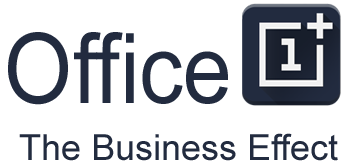Google uses more than 200 ranking signals. These signals decide the ranking of a webpage. Over the years, Google’s ranking algorithm has changed a lot. Many people preach that the old metric: keyword relevance is not important anymore. But that is not the case. Keywords are still crucial when it comes to web-page ranking. Optimising the keyword to turn it into a great SEO weapon is a skill that every website owner and content marketer should possess.
5 Unique Tips To Optimise Your Search Ranking Using Keywords
- Google Can Pick Search Snippets from Any Part Of Your Webpage: Scatter Your Keywords
Search engine snippets are those lines that you see below the title on the Google Search page. They provide a summary of what is there on the particular web-page. This summary can be taken from any part of the article on the webpage – even if you have meta-description in place. So, do not just keep your keywords concentrated within a particular limit of a webpage. Each part of your webpage should be informative. They should be endowed with descriptive keywords.
- Google Also Takes Into Account Question Type Search Query
These days the Google search results page has a ‘people also ask’ part. This part shows that people now actually search with full-fledged questions. So, according to a top SEO company in Melbourne while writing for your website, make sure that you use keyword-rich questions in them. You can incorporate some FAQs and can make your H2 and H3 appear in the form of questions too. So, suppose you have a mobile store and you are writing a blog on Samsung’s latest smartphone, instead of making an H2 like – ‘Samsung Galaxy S20 RAM,’ write the H2 as – ‘How Much RAM Does Samsung Galaxy S20 Have?’
- It’s A Competitive World: Long Tail Is The Way To Go
If you search for, say, ‘mobile stores in New York,’ the first page of the Google search results features all the big brands like Samsung, Verizon etc. So, can a small mobile store owner throw away her dream of making her store website rank on the first page of Google? No! This is where long-tail keywords come into play. When all the high ranking keywords are hijacked by the big players – it is the non-competitive long-tail keywords that come to the aid of the smaller players. Therefore, if a mobile store in New York doesn’t work for you, you can try and see if ‘Best mobile store in New York near Garden City’ works for you.
- Use Google Search Console To Make Your Page Come Up From Page 10 To Page 1
If you click on the Performance option in Google Search Console, you will see what search queries by people help your page to be shown. When people type in a search query that is related to the keyword(s) used by you – your web-page can be shown on page 5 or 6 or 10… But now that you know that you know the exact search query, you can incorporate it in your web page text. Incorporating that exact search query will help you rank higher.
- Frontloading Your Keywords
Backlinko rightly says that if you want your web page to rank for a keyword, make sure that it appears towards the beginning of the Title. It will increase the chances of the web page rank higher for that particular keyword. So between ‘Best Sydney Pizza Store’ and ‘Pizza Store In Sydney: The Best One,’ the second title has the capacity of attracting visitors as well as Google’s crawlers.
Food for Thought
Most sub-Reddit communities have one community rule in common- Remember The Human. This is also true for anybody using the keyword optimization techniques. In our urge to rank higher on Google, we sometimes infuse unnatural keywords that mess with the flow of the article and hinders the presentation of the idea. These unnatural keywords are like speed bumps on the otherwise smooth road.
At the end of the day, it is the humans that we target our articles at. Use keywords by all means to rank. But don’t bombard the readers with keywords. Don’t use unnatural keywords. Gone are the days when people used search queries like ‘Garage Door NewYork.’ People now use full-fledged sentences like ‘best garage door company in NewYork.’ Remember, Google’s crawlers won’t buy your products, the humans will.

